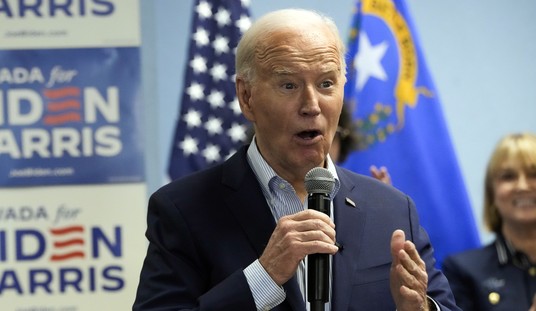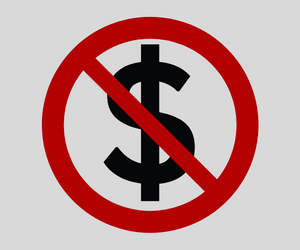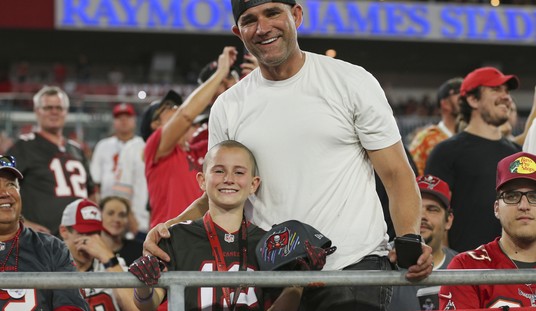
Cancel culture, the act of destroying someone’s life over the fact that they disagree with popular opinion or have done something that goes against the cause célèbre (even if it was years and years ago) is something that the general public disagrees with as a majority, yet will do nothing about.
According to Politico, a new poll shows that the majority of Americans think cancel culture has gone too far and more have a generally negative opinion about it. A much smaller amount believe it’s a positive force in our society:
Cancel culture is generally discussed as being performed on social media in the form of group shaming. A plurality (46%) of Americans believe that cancel culture “has gone too far.” About a quarter of Americans — many of whom are perhaps blissfully offline — said they didn’t know or had no opinion on the matter. When they are removed from the results, a clear majority — across almost every demographic category — says that cancel culture has gone too far.
Twenty-seven percent of voters said cancel culture had a somewhat positive or very positive impact on society, but almost half (49%) said it had a somewhat negative or very negative impact.
While online shaming may seem like a major preoccupation for the public if you spend a lot of time on Twitter, only 40% of voters say they have participated in cancel culture and only one in 10 say they participate “often.” It appears to be more of a liberal pursuit: Half of Democrats have shared their dislike of a public figure on social media after they did something objectionable, while only a third of Republicans say they have.
We believe cancel culture to be bad as a majority and for good reason. We’ve watched people be torn to shreds socially for things that are either silly or happened so long ago that to say they’re the same person who said that today would be ridiculous. What’s more, public apologies do nothing to help. In fact, they only seem to make the situation worse.
The saying goes that all evil needs to thrive is for good men to do nothing.
Taking a step back and looking at cancel culture as a passive observer from a different planet, you’d be hard-pressed to find a spiritual difference between cancel culture and schoolyard bullying. Both seem to be people acting out against innocents with no clear discernable goal except to feel some sort of power or control. Both take an unwillingness to fight as an invitation to continue their behavior, and capitulation only makes the bullying worse.
In the schoolyard, the bullying only seems to stop when the bullied make it consequential for the bully to act out on them. A measure of pain inflicted on those who inflict it tends to teach them that attempting to dominate someone results in very real pain. One doesn’t even necessarily have to win the fight. Inflict damage and the bully begins to have second thoughts about making you a victim.
So how do we do this to cancel culture?
Cancel culture consists of a multitude of bullies and not all of them can be punished nor should they be. Sometimes, it’s just people expressing their disagreement which is perfectly fine. In order to combat cancel culture we first have to understand that our real target isn’t the people doing the canceling, it’s the businesses that are caving.
What cancel culture really is, is a boycott war at its heart.
Cancel culture wouldn’t have any teeth if businesses and government bodies didn’t capitulate. It would just be a lot of people complaining about something online, and to be honest, the internet’s default setting is people complaining about something to everyone else. Shrugging off the opinions of others is becoming second nature as we evolve as a culture alongside web access.
This means that the moment a business caves to cancel culture, not only must you make them understand that what they did was wrong through social media, but do what Americans have done for ages and begin voting with your wallet.
This is, as you may guess, a sort of cancelation of your own, but we live in a capitalist system where money does more talking than most anything else. You don’t need to lead a high-profile protest or take major legal action. All you need to do is distance yourself from the company. If a company knee-jerks into firing someone over something they shouldn’t have been fired over, then use a different company’s products.
Furthermore, if a company resists cancel culture, then reward them. Goya recently fought back against cancel culture and found themselves far richer than they were before the cancelation started. Red Bull refused to cave to the mob by firing executives that were trying to force the company to do so. CD Projekt Red refused to cave to the mob’s demands to add modern-day politics to its games.
The cool thing about our system is that voting with your wallet is playing your own game of cancel culture, but instead of just pure destruction and ruination like the mob would have, you’re actually lifting up other brands that refuse to participate in this gross practice.
So the answer to cancel culture is far more simple than we think. Buy from companies that refuse to help the mob, don’t buy from those that do.
There will always be an angry mob, the key is to make sure that companies understand that they don’t have to listen to them, and what’s more, will be rewarded for not caving.
















Join the conversation as a VIP Member